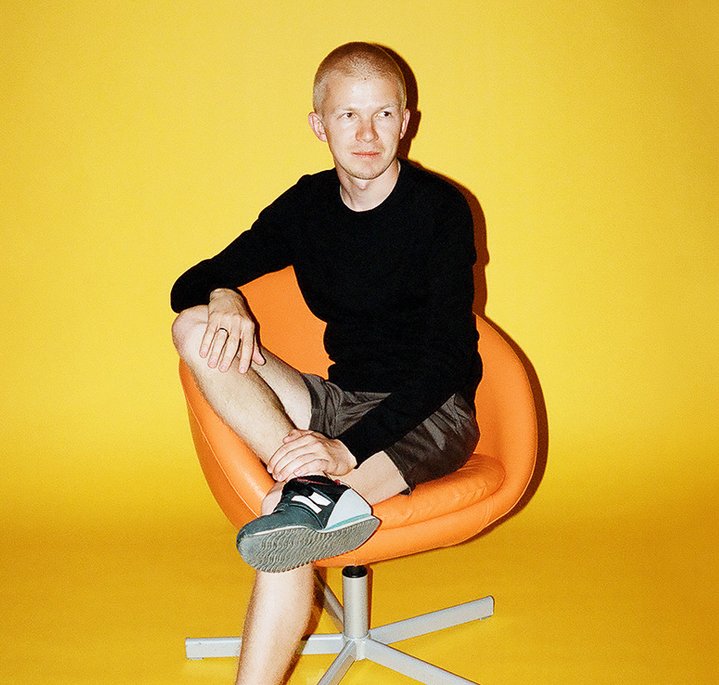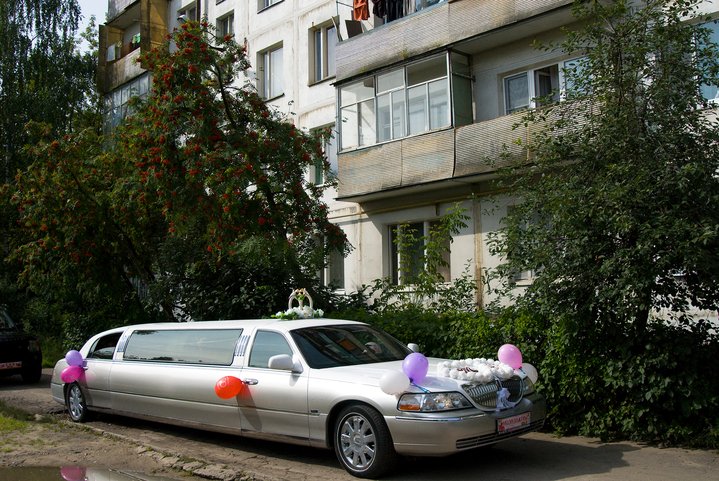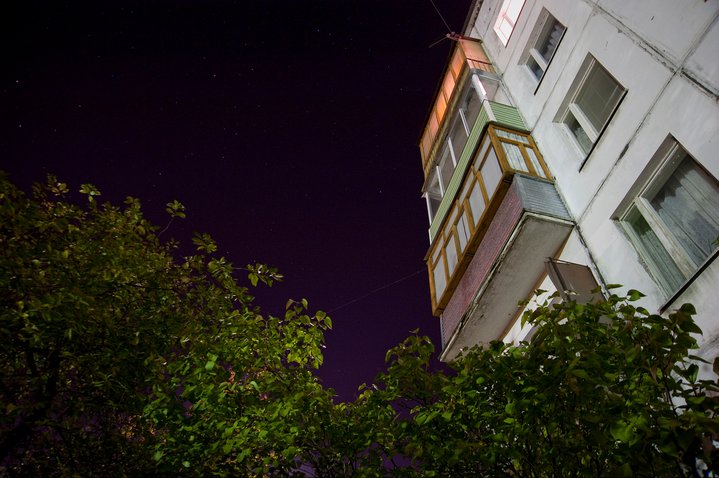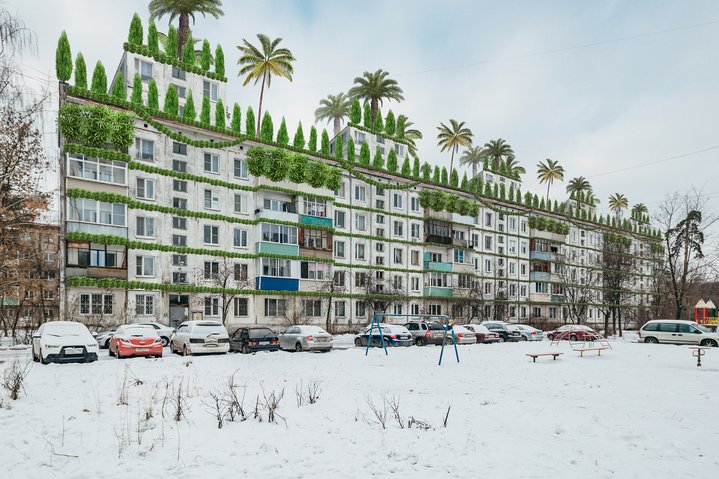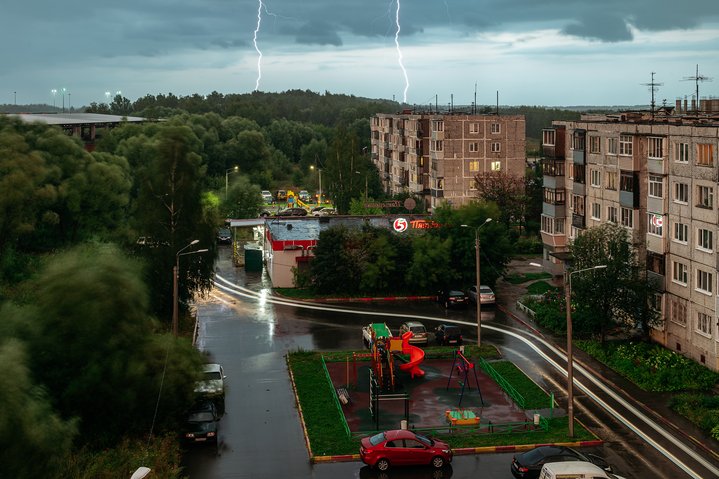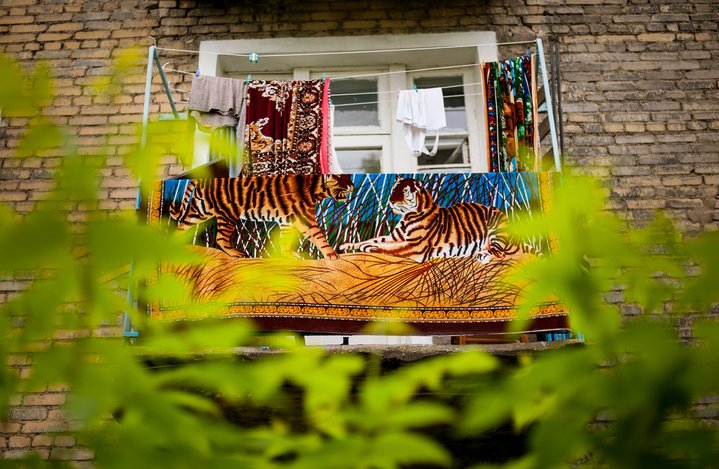Roman Mokrov. One’s Own Place series, 2006–2020. Colour large-format printing. Courtesy of Jewish Museum and Tolerance Center
Roman Mokrov: Poet of electric trains and apartment blocks
A solo exhibition of Roman Mokrov, a Russian photographer fascinated with Russian suburbia, has opened at the Jewish Museum and Tolerance Centre in Moscow.
Roman Mokrov (b. 1986) is a singer of suburbia. His exhibition at the Jewish Museum and Tolerance centre involves an ironic photography installation in the lobby that marks out the space of the museum itself, defining the entrance to and exit from it, like the anteroom in a Russian bathhouse, or like a book’s preface or conclusion. Mokrov has transformed the entrance hall of the museum into what the Moscow suburbs are in relation to Moscow.
Four views of the courtyard alternating between Spring, Summer, Autumn, and Winter spell out the main installation, all shot from above looking down. “God's gaze” over a suburban landscape where there is a corridor running between two five-storey buildings, different only from other similar landscapes because this is where the artist lives, in a town called Electrougli.
“Electrougli is an image with no gloss, with no landscaping. Not a concrete place. It’s like a parable. There could be a courtyard like this anywhere,” Mokrov believes. “The five-storey building I live in was built in 1970, and it's a dead-end.” He is concerned with environmental change, which he studies in fastidious detail: “wild capitalism is on its way here, the remaining private houses are now being demolished, three storey shopping centres are popping up everywhere and taxis are coming.” The new Pyatyorochka (a popular Russian supermarket chain) is one of Mokrov's subjects.
Roman Mokrov came to art in the early 2010s as a psychology graduate. He studied at the Free Workshops School of Contemporary Art at the Moscow Museum of Modern Art, at the Institute of Contemporary Art, and did a course at the Rodchenko School in Moscow. In 2012, he received a special prize from the Stella Art Foundation at the 7th Russian Innovation Awards. “I was very inspired by Richard Billingham,” Mokrov admits, “because you don't have to show off what bokeh you have or what kind of film you are using, probably because I never learned how to shoot beautifully”.
The Moscow suburbs are the chaos that surrounds the megapolis, which lies beyond the attention of most artists. Roman Mokrov tries to make it visible and uncover its laws. It is a place whose inhabitants storm into suburban electric trains twice a day to commute to work in the Big City. This led to his video piece, ‘The Neverending Story’ produced in 2011 which tells the story of people who climb through a hole in the fence to get on the train for free. “I like video more than ‘photography’ because the picture moves, like poetry, where you don’t quite understand how it all works.”
Elektrougli is a satellite of Moscow, the town grew up around a factory, the population just over 20,000 inhabitants and its history is limited to the 20th century. Nothing is remarkable. With the exception of the Elektrougli Gallery, a “gallery” which is in fact more an association of young activists. Their situationist practices occupy a special place on the map of young Russian art. Domestic art groups with which they can be compared are the ultra-radical anarcho-regionalist movement (DVURAK) and the Zaibi group (For Anonymous and Free Art), anti-institutional collectives from the 90s and 00s whose activities have never been well-researched. At Elektrougli Gallery there is an interest in the local, an understanding of localism as a radical art practice, the organization of walks and parties, it's all part of an ethos.
Electrougli is typically a no man’s place. A place without an image, a city without a face, whose Soviet name is so clichéd (it literally translates as ‘electro’ and ‘coal’) that most people who hear it immediately first think of Electrostal (translated as ‘electro’ and ‘steel’), a larger city satellite of Moscow. No one ever says, “let's go to Elektrougli!”. It is a city with no attractions. And so what is special here is what otherwise goes completely unnoticed: everyday life. “What I see, I sing about,” says Roman Mokrov, and he adds, “what attracts me to photography is its accessibility”.
Roman Mokrov. One’s Own Place
Jewish Museum and Tolerance Centre
Moscow, Russia
June 19 – July 27, 2022






